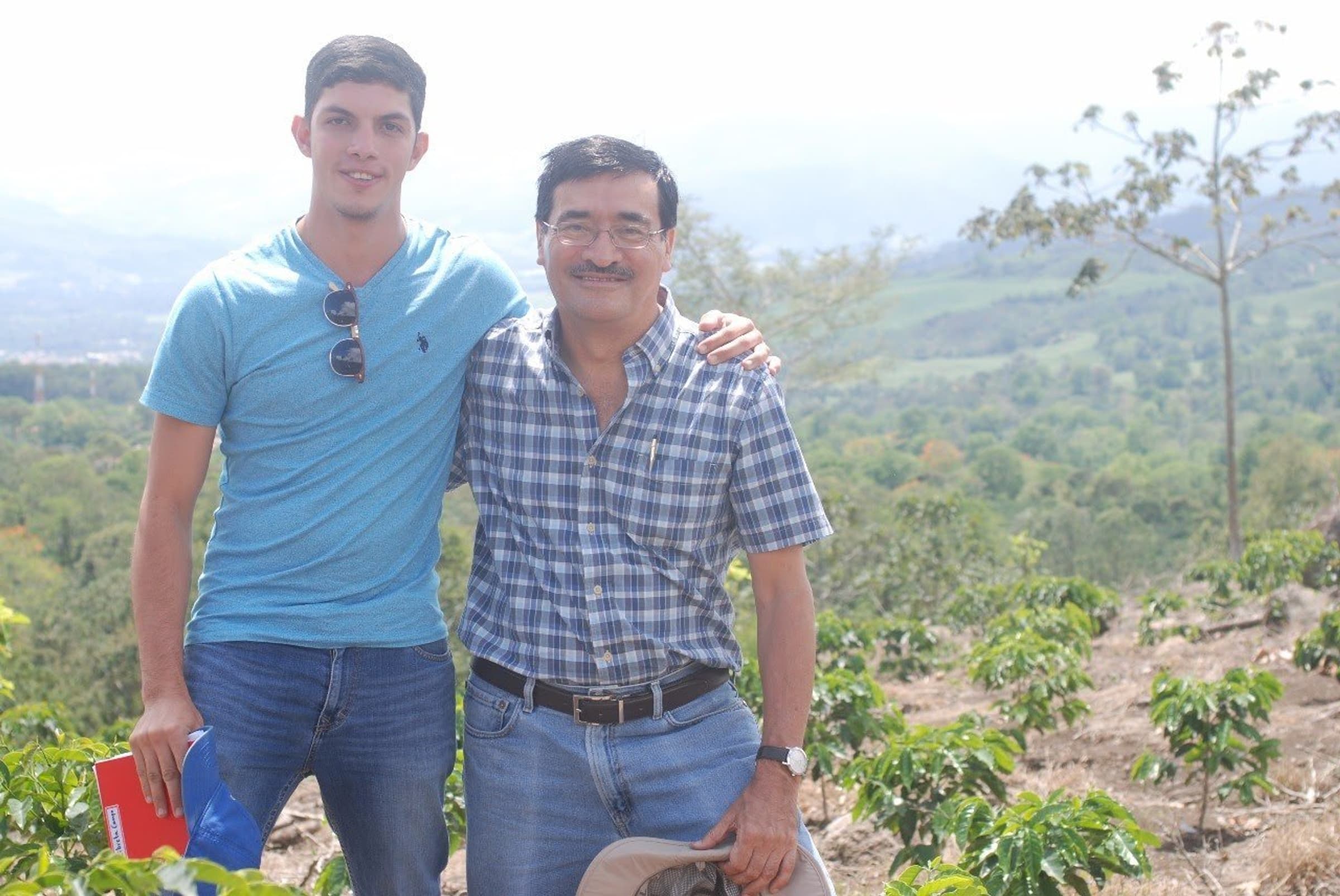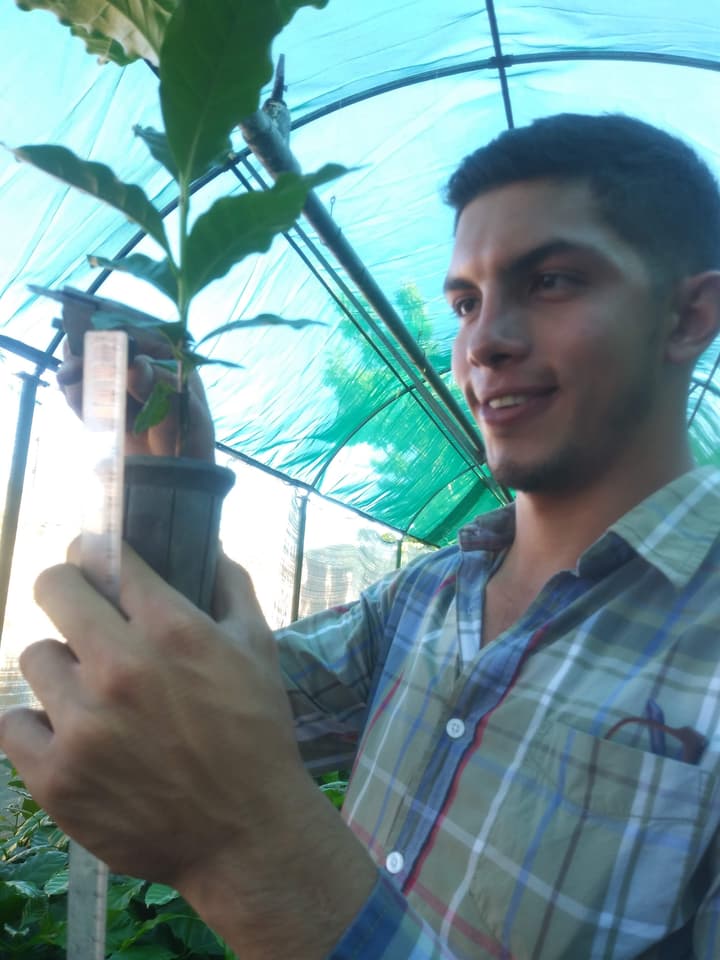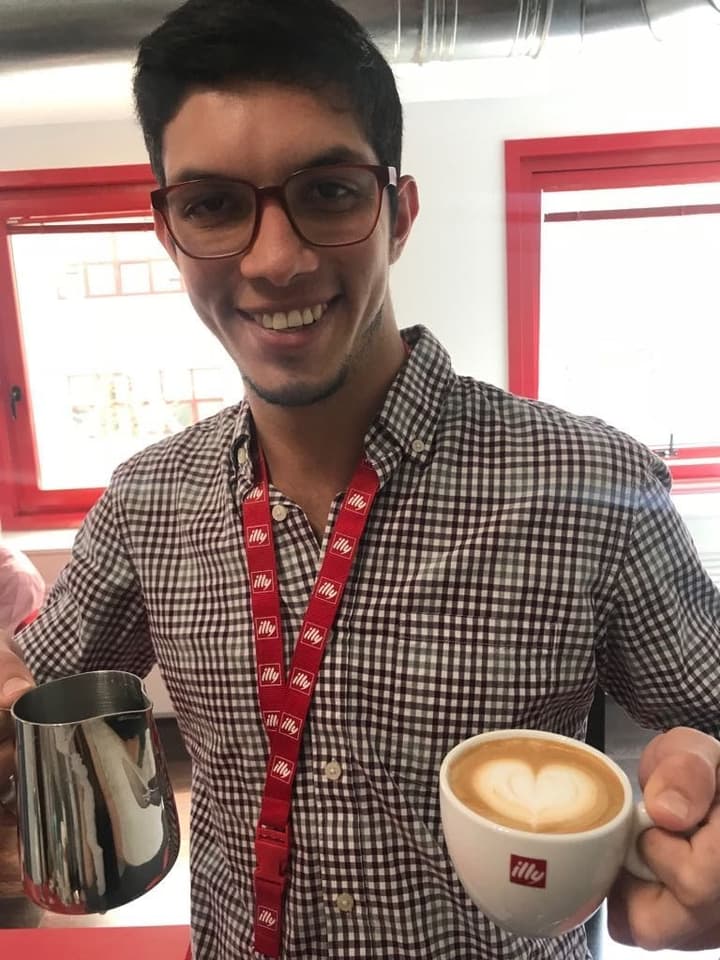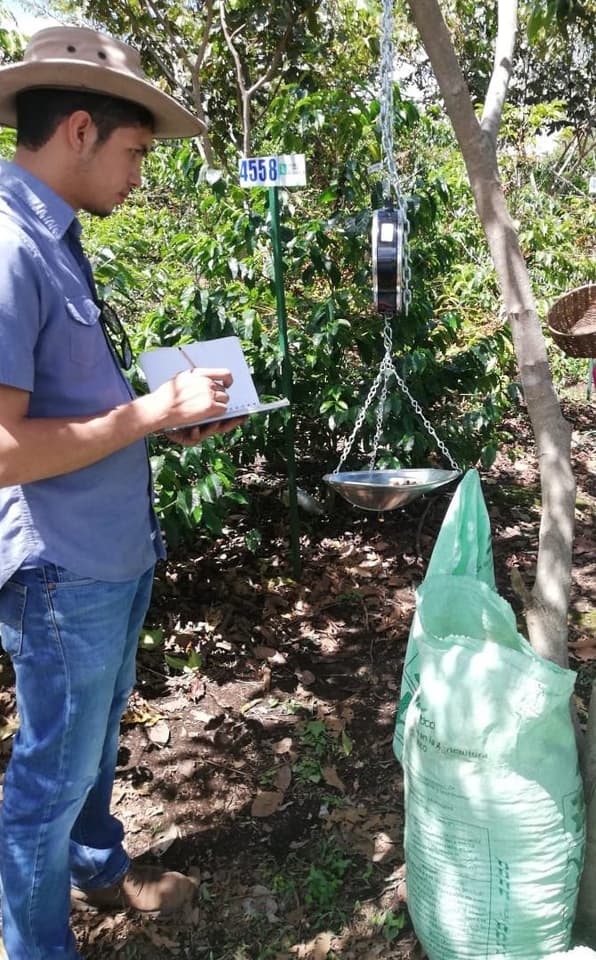Get to Know Julio Alvarado Quintana
WCR’s Research Technician discusses his coffee journey

Julio (left) with Francisco Anzueto, WCR's Scientific Coordinator, Central America. Photo by World Coffee Research.
Julio Alvarado Quintana has had a close relationship with coffee spanning more than a decade. Over that time, he has progressed from coffee enthusiast, to coffee student while earning his master’s at the University of Udine, Trieste and Fondazione Ernesto Illy (aka illy University), to coffee researcher—he currently serves as a Research Technician contributing to WCR’s breeding program and agronomic trials in Central America. We talked to Julio to learn more about his journey and why coffee is so important to him.
WCR: What were your first experiences with coffee? How did you get interested in it?
JAQ: Coffee has been present in my life since I first tasted it as a 5-year-old. Thirteen years after my first coffee experience, I moved to Honduras to pursue my bachelor’s degree at Zamorano University. One month after I left home, my parents visited me and brought a coffee maker and some Salvadorian coffee. From that day forward, my room always had the great smell of coffee. One day a friend asked me what variety I was drinking. It was an awkward question because I realized I didn’t know anything about coffee! So I started reading about coffee, and I became more and more interested in the amazing science behind it.
I then became more passionate about coffee every day, both reading about it and trying different coffees from Central America. My room became a “coffee shop”: I would have at least three coffees, three brewing methods, two grinders, and five cups. It was common to find me with my friends in my room drinking several cups of coffee before studying at night. So coffee for me became a culture and a dream.
WCR: Why did you decide to pursue your master's degree with Fondazione Ernesto Illy in Italy? Can you describe what that experience was like?

Julio with a coffee seedling at the Flor Amarilla experimental farm. Photo by World Coffee Research.
JAQ: In 2014 I learned about the illy master’s in coffee science and economics because a Salvadorian guy who had graduated from Zamorano was enrolled in the program. After reading about the master’s, it became my biggest dream to pursue it. I had a great experience in Trieste since the first day—finding myself in a classroom with wonderful people sharing a common passion for coffee was incredible (I really miss these people) and I learned so many new things.
After earning the master’s, I was so happy to return to my home country and join World Coffee Research as a Research Technician. The master’s program showed me the challenges we are facing in the coffee industry, and when I came back I committed myself to give my best at WCR and to keep learning about coffee breeding.
WCR: Can you describe your job duties and day-to-day work through your job with WCR?
JAQ: I’m in charge of collecting data for the seven different trials we have at the Flor Amarilla experimental farm in El Salvador, which range from the Core Collection and F1 hybrid trials to WCR’s International Multilocation Variety Trials (IMLVT).
My duties include executing the agronomical annual plan and ensuring the good conditions of the trials. I love my job because it is very dynamic—one day I could be at our headquarters taking care of the IMLVT plants, the next day preparing Core Collection seeds. The next week I may be harvesting coffee from new F1 hybrids trials or measuring vegetative growth for another trial. There are always many things to do, and all of it is exciting to me. I love thinking about one day drinking an espresso made from F1 hybrids; when I drink it, I will remember all those mornings measuring our trials at Flor Amarilla.

Julio followed his passion for coffee to earn his master's degree from Fondazione Ernesto Illy in Italy. Photo courtesy of Julio Alvarado Quintana.
WCR: You did the first statistical data collection of F1 hybrids at WCR's farm in El Salvador. Can you share what you learned there?
JAQ: This was my first experience with calculating breeding values, and I analyzed 21 hybrids in terms of general combinatory aptitude (GCA) and specific combinatory aptitude (SCA). GCA refers to the potential of one parental line to produce a good offspring, while SCA refers to the performance of a cross of parents compared with the half-siblings. Through this approach, I analyzed which of the hybrids had the best performance for the five traits evaluated. Those traits were divided into two groups: technological variables (percentages of triangles, peaberry, and empty fruit locule) and vegetative variables (stem girth and quantity of nodes). There are many other traits that could have been evaluated as well, and I’m always willing to keep learning. I look forward to analyzing more traits in the near future.
WCR: Lastly, what do you like most about working in coffee?
JAQ: I truly believe we can contribute to a brighter future for the whole coffee value chain. Coffee itself is a beautiful crop; it is important from an economical, sociological, and environmental perspective. I think when you find something you’re passionate about, it’s no longer work—it just becomes part of your life. That’s why I love working in coffee; it has become part of my DNA.

Julio Alvarado taking data of the weight of coffee cherry harvested at Flor Amarilla. Photo by World Coffee Research.